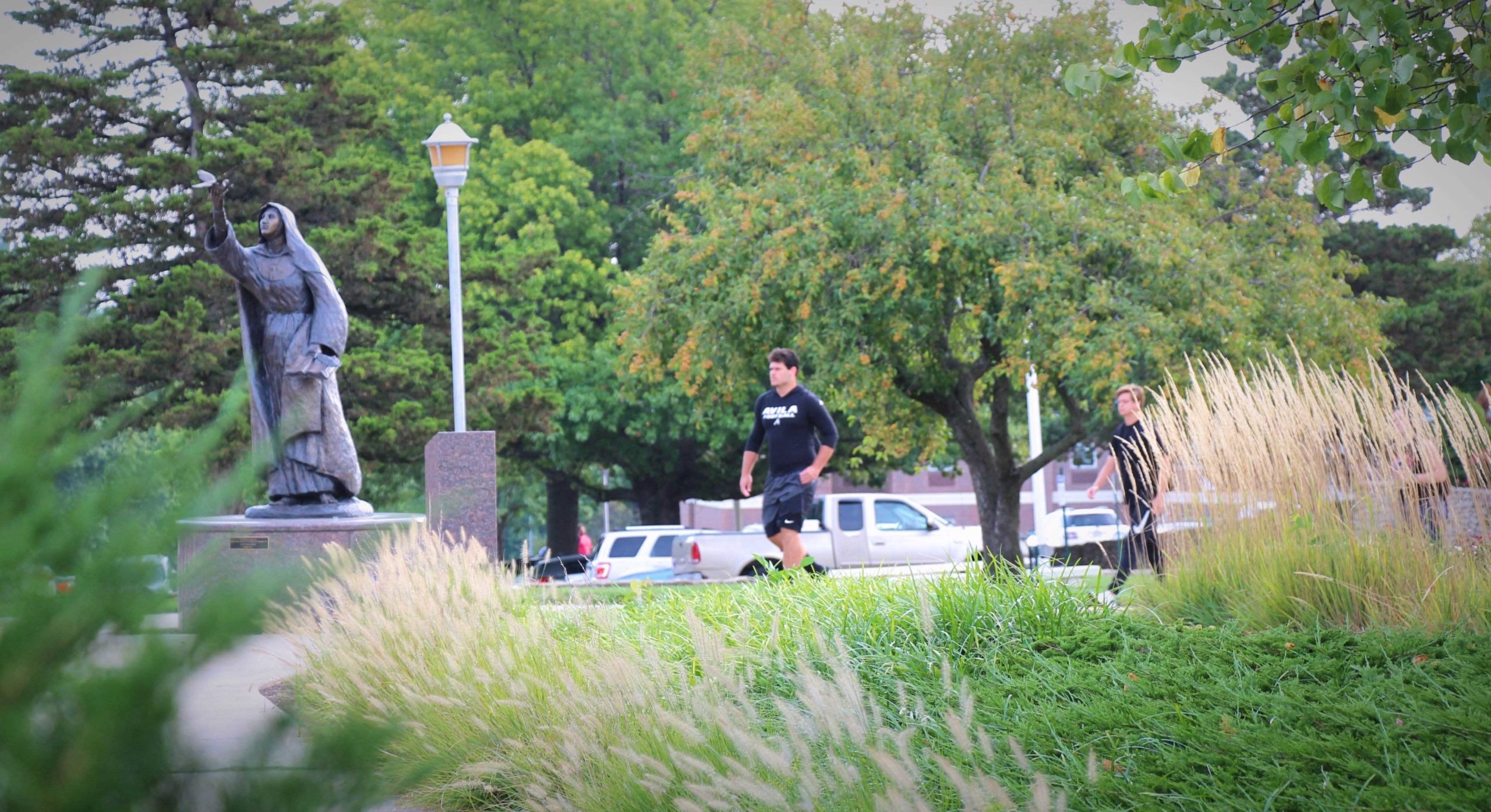Connect with CSE!
Contact
Center for Student Excellence, Hodes #8
P: 8165013606 / E: avilasuccess
Counseling Services
Counseling Services affirms the mission of Avila University by serving and partnering with students and the Avila community to encourage self-awareness and the development of effective life skills to promote quality of life and personal wellness.
Personal problems and mental health concerns can get in the way of you achieving your potential. To help you navigate the challenges of life, Avila offers free and confidential counseling for all our students. Our goal is to assist students in making the most of their educational opportunities and enhance the quality of their lives.
During a counseling session, the counselor will ask you questions in order to help you talk about your concerns and identify your goals for counseling. You will never be forced to talk about anything you don’t want to; however, you may be encouraged to examine unhealthy patterns and behaviors.
Counseling sessions are typically 45 to 50 minutes in length. Some of the more common problems addressed in counseling include:
- Depression
- Anxiety
- Loss/Grief
- Stress
- Decision-Making
- Academic Concerns
- Adjusting to College
- Homesickness
- Worries/Fears
- Relationships
- Self-Esteem
- Choosing a Major/Career
All of our students have access to counseling with either our in-house clinicians either on campus or online via telehealth, and to our exclusively telehealth counseling (including round the clock crisis services) and primary care services via our relationship with UWill.
Online Primary Care and Telehealth Counseling Services: Free to all students, with extended availability and on-demand crisis counseling services offered 24/7, 365 days per year https://app.uwill.com. Must use Avila.edu email address to sign up.

Contact
Joshua Paszkiewicz, DHA, DMin, RN, LCPC, BCC, Director of Health Services
P: 816.501.3767 / E: joshua.paszkiewicz
Informational Resources – Student Support
The following links are to provide education and awareness about various mental health topics. They are not intended to be a substitute for actual counseling.
Life in College
Suicide Prevention Training
Alcohol Awareness
- Alcohol Screening
- Check Your Drinking
- Drinker’s Check-up
- Facts on Tap
- Rethinking Drinking
- Start Your Recovery
- Start Your Recovery College Resource Page
Body Image & Eating Disorders
Psychological Screenings, Assessments, Tests and Quizzes
Disabilities
Avila University Suicide Prevention Training Program
The Avila University Suicide Prevention Training Program, Ask Listen Refer was designed to help faculty, staff, and students prevent suicide by teaching you to:
- Identify people at risk for suicide
- Recognize the risk factors, protective factors, and warning signs of suicide
- Respond to and get help for people at risk
Concern for a Student
If you are working with a student whom you believe is struggling with a mental health issue, you can seek a consultation with the counselor or refer him/her to Counseling & Career Services. Also, you can alert the Avila Care Team (ACT) about your concern by completing an online referral form.
The following are some possible reasons you might be concerned about a student:
- Reports change in appetite or sleep
- Unusual problems with concentration
- Unusual lack of motivation
- Unusual mood swings
- High levels of irritability or anger
- Sudden lack of interest in usual pursuits
- Falling asleep in class
- Consistently not attending a class (new behavior)
- A consistent decline in grades
- Overdependence – makes excessive appointments or frequently hangs around your office
- Appears to use alcohol or other drugs to cope with stress
- Sadness, depression, tearfulness
- Strange or bizarre behavior
- Noticeable decrease in personal hygiene
- Makes overt or subtle statements about wanting to hurt self
- Dealing with a loss or has a class absence related to the death of a family member or friend
- Class absence related to a family situation
Approaching a Student with Your Concern
- Invite the student to meet in a private area.
- If the student seems upset, angry, or otherwise emotional, acknowledge this. “Sara, you seem sad lately.”
- Briefly state your concern or your observations. “I am concerned that you seem to be having problems with concentration and completing assignments,” or “I am concerned that you have missed classes lately.”
- Allow the student to talk while you listen in a non-judgmental manner.
- If comfortable, help the student identify the problem and alternatives to dealing with their current stress or situation.
- Depending on the issue, you may suggest the student seek counseling services and offer to help them with this.
Some Things to Keep in Mind:
- Students aren’t always aware of the resources available to them on campus, particularly non-traditional students.
- If you are ever unsure how to approach a student, or you are beyond your comfort level in talking with the student, the counselor is available to help.
- Although you may give students the contact information and location of Counseling & Career Services, the likelihood of them getting the help they need is greater if you do one of the following:
- Call Counseling & Career Services at ext. 3767 or 2901 prior to walking the student over to make an appointment.
- Allow the student to call for an appointment from your office. If the counselor is not available, encourage them to leave a message with a contact phone number.
Emergency Assistance
During Regular Business Hours: If a crisis or mental health emergency occurs during business hours, call Counseling & Career Services at 816.501.2901 or 816.501.3767.
If the emergency is life-threatening, dial 911 (if from an on-campus phone dial 9 – 911) before calling Counseling & Career Services.
After Hours: If a crisis or mental health emergency occurs after normal business hours or when the university is closed, please utilize the following resources:
On-campus emergencies: Campus Public Safety – 816.985.6079
If the emergency is life-threatening, dial 911 (if from an on-campus phone dial 9 – 911)
Off-campus emergencies: For life-threatening emergencies, dial 911
Local Resources
- Kansas City Police Department – 816.234.5550, ask for a Crisis Intervention Team (CIT) Officer
- CommCare (Crisis Line) – 1.888.279.8188
- MOCSA (Rape Crisis Line) – 816.531.0233 (MO) and 913.642.0233 (KS)
- St. Joseph Medical Center – 816.942.4400
- Research Psychiatric Center – 816.444.8161
- Missouri Crisis Line: 1.800.833.3915
National Resources
- National Suicide Prevention Lifeline: 1.800.273.TALK (8255)
- Get Help Now: 1.800.999.9999
- LGBTQ Helpline:1.866.488.7386
- Veterans’ Suicide Prevention Lifeline: 1.800.273.8255, then press 1
- Crisis Text Line: Text “hello” or “help” to 741-741 to message a licensed clinician
Getting around the CSE
Slepitza Center for Student Excellence Offices
